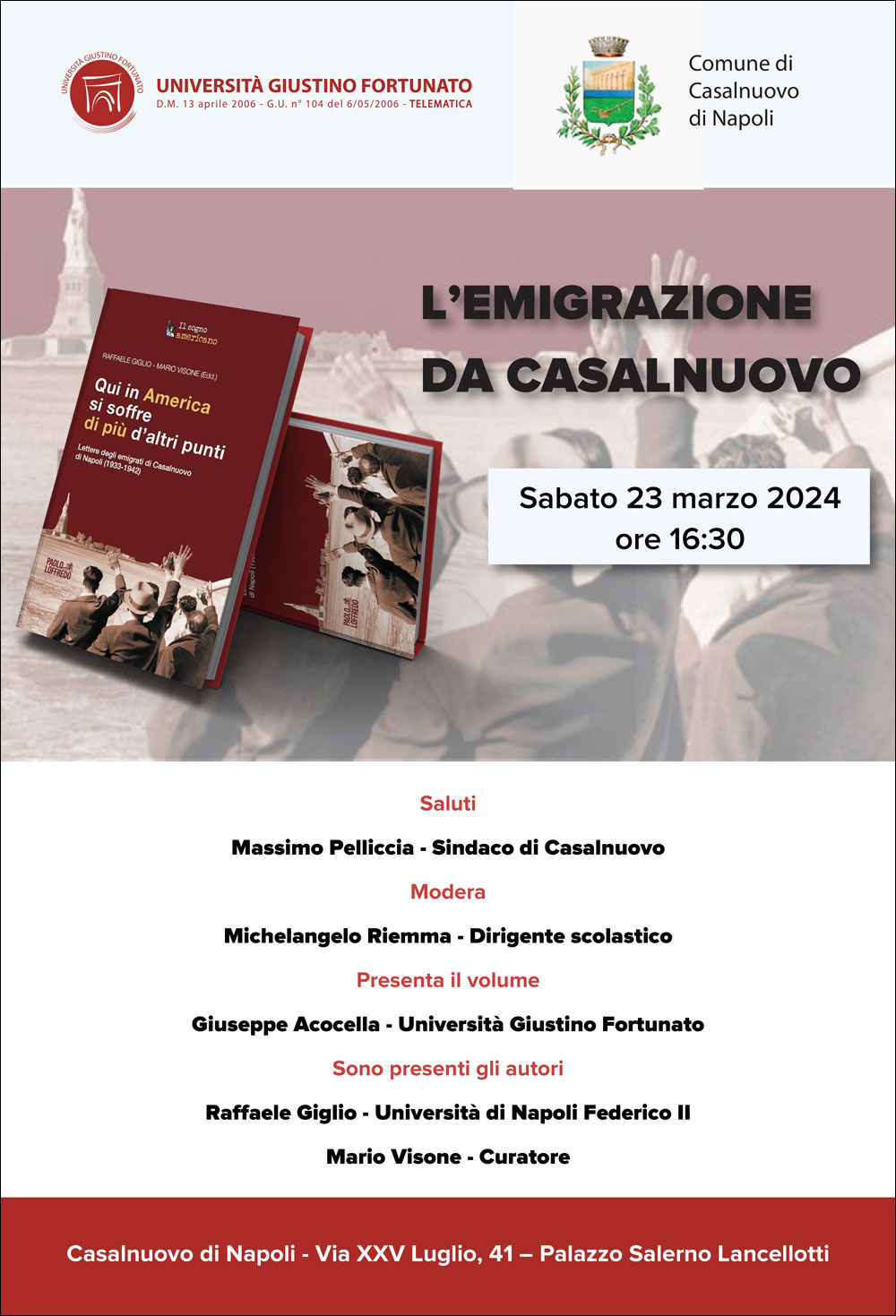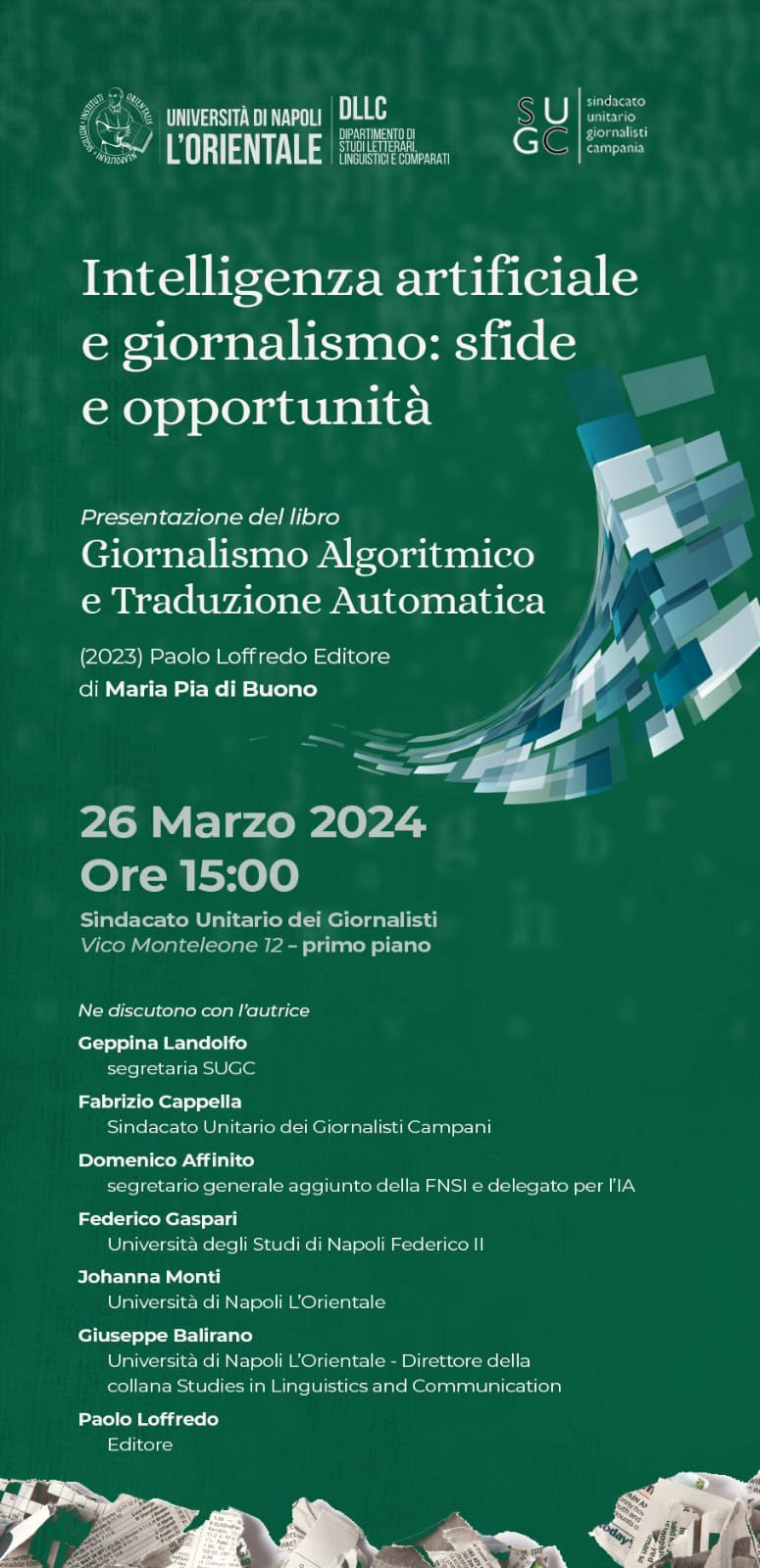 Paolo Loffredo, sixth generation of a large family of publishers and booksellers engaged in the production and distribution of books since the late nineteenth century, creates in 2012 the new editorial company Paolo Loffredo Editore. The historical site was until the '80s in the heart of the historic centre of Naples in Via San Biagio dei Librai, lower Decumano and also known as the SpaccaNapoli.
Paolo Loffredo, sixth generation of a large family of publishers and booksellers engaged in the production and distribution of books since the late nineteenth century, creates in 2012 the new editorial company Paolo Loffredo Editore. The historical site was until the '80s in the heart of the historic centre of Naples in Via San Biagio dei Librai, lower Decumano and also known as the SpaccaNapoli.
At the beginning of the twentieth century, Giuseppe Loffredo decided to add book selling to the book production, which definitively imposed itself after World War II with the publication of manuals for the University and for the School that succeeded in establishing themselves soon throughout Italy.
LAST EVENT
"L'emigrazione da Casalnuovo"
23 Marzo 2024 - Palazzo Salerno Lancellotti Ateneo, via XXV Luglio, 41 - Casalnuovo (NA) - ore 16,30

--------------------------------------------------------------------
"Intelligenza artificiale e giornalismo: sfide e opportunità"
26 Marzo 2024 - Sindacato Unitario dei Giornalisti - vico Monteleone, 12 - primo Piano - Napoli - ore 15,00

Per la valorizzazione del patrimonio culturale della Campania – Il contributo degli studi medio e neolatini
ISSN 2611-2795
Language: Latino, Italiano
Publisher: Paolo Loffredo Iniziative Editoriali Srl

Description
Book Preview
Review by "Museum Helveticum - Université de Lausanne"
Per la valorizzazione del patrimonio culturale della Campania. Il contributo degli studi medio- e ne-olatini
The idea of setting up this volume was born from the need to focus on some of the complex relationships existing between the material and immaterial heritage of culture - a key issue in the humanistic research of the last decades - but also by the desire to meditate on the contribution that the medium- and neo-Latin studies have given and can still give in view of the enhancement of the territory. To this end, the attention has been focused on the cultural heritage of Campania, which, with its varied wealth, is both material and immaterial, and with its becoming a center and crossroads of many important traditions, lends itself to provide interesting insights for each kind of research and debates. Thus, a variegated miscellany of essays has been found here, under the same cover, aimed at underlining how literature in general and in particular the medium- and neo-Latin one manifest an intrinsic capacity, in their quality as an intangible cultural heritage , to explain and at the same time enhance its material assets within an osmotic process that can not be separated from any of the elements at stake and, more than ever, from the sphere of the territory in which these assets took shape and found the their natural collocation.
Author
Giuseppe Germano teaches Medieval Latin literature and humanistic at university of Naples Federico II. There, he was the coordinator of the PhD in Classic, Christian a Medieval philology and Greek and Latin Philology. He is now the coordinator of the master course in Ancient world philology, literatures and civilization.
Moreover, he established relationships with international institutes and took part in many research projects. As a critic publisher and a Latin works exegete, he conducts his philological and literal studies focusing on his personal interests, as the Neapolitan Humanism.













